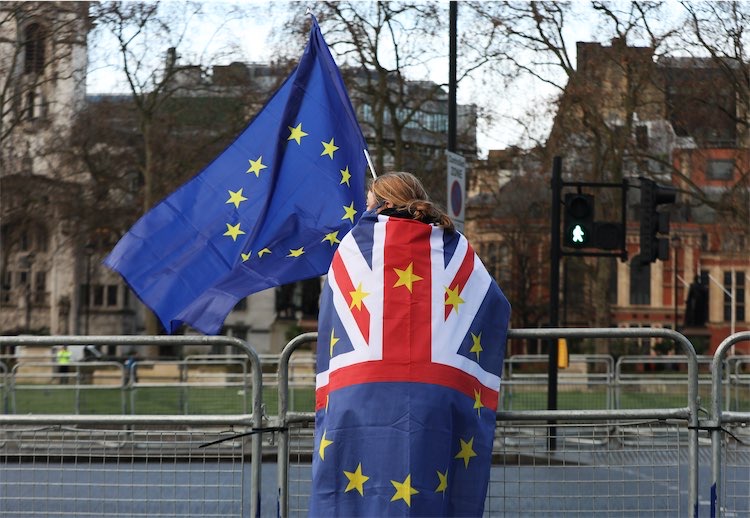Labour Lays Into Ambulance Waiting Times, Inflation Falls Again, Nurses Begin Fresh Strike
Keir Starmer challenged Rishi Sunak on ambulance wait times at PMQs (Alamy)
6 min read
Labour leader Keir Starmer has accused the prime minister of not taking responsibility for long ambulance waiting times in a heated session of Prime Minister's Questions (PMQs), as a new wave of NHS staff go on strike.
Medics are currently calling ambulance wait times “truly shocking”, with heart attack victims facing a record average of 90-minute waits for ambulances last month.
These record figures come in another week of NHS strikes, with nurses striking across the country on Wednesday and Thursday.
Addressing MPs, Starmer said: “The Prime Minister can deflect all he likes but for the person suffering from chest pains, the clock started ticking straight away. Every minute counts.
“Stop blaming others, take some responsibility and just admit that under his watch, the NHS is in crisis.”
Rishi Sunak responded by asking Starmer why Labour will not support the minimum service levels proposed in the government’s strikes legislation.
“We're rapidly implementing measures to improve the delivery of ambulance times and indeed urgent and emergency care," Sunak said.
"If [Starmer] cares about ensuring that patients get access to life saving emergency care when they need it, why won't he support our minimum safety legislation?”
The new anti-strikes bill will extend a minimum service law to five new areas including the NHS, education, fire and rescue, border security and nuclear decommissioning.
This would allow employers to set out the workforce they need, preventing employees on the list from being able to strike with protection from unfair dismissal.
The Prime Minister highlighted that the NHS is also under huge pressure in Wales, where the NHS is run by the Welsh Labour government, and said that despite challenges from Covid-19 and an early flu season, “everyone is doing their best to bring those wait times down”.
The issue of Scotland’s gender recognition reform bill was also raised at PMQs.
Stephen Flynn, leader of the SNP in the Commons, called the government’s decision to block Holyrood’s bill on gender recognition reform a “dangerous moment for devolution”.
“The Scottish government kept their manifesto promise to the people, and thanks to support from members of all political parties in Holyrood, the GRR bill was passed,” he said.
“Surely in that context, the Prime Minister must recognise that is a dangerous moment for devolution when both he and indeed the Leader of the Opposition, seek to overturn a promise made between Scotland's politicians and Scotland's people.
“This is the Conservative party seeking to stoke a culture war against some of the most marginalised people in society.”
Sunak said the decision was “centred on the legislation’s consequences for reserved matters” and that the bill would have had an adverse effect on the UK Equality Act.
Inflation falls for second consecutive month but remains at 40-year high
 (Alamy)
(Alamy)
Inflation fell to 10.5 per cent in December, the second consecutive drop in a row, but still remains at a record high as the cost of living crisis bites.
The latest figures from the Office for National Statistics (ONS) represent a slight fall from November’s figure of 10.7 per cent, after inflation hit a 40-year high of 11.1 per cent in October.
The high figures are largely driven by high food prices, which rose In December for the 12th straight month, hitting 16.9 per cent.
Chancellor Jeremy Hunt said inflation was “a nightmare for family budgets, destroys business investment and leads to strike action”.
“While any fall in inflation is welcome, we have a plan to go further and halve inflation this year, reduce debt and grow the economy – but it is vital that we take the difficult decisions needed and see the plan through,” he said.
Immigration minister Robert Jenrick warned that the “worst thing that we could do domestically” was to increase public sector pay, as is being called for by a number of sectors where strike action is being held.
“We have to approach it with great caution because inflation is the big evil. That's the thing that's diminishing people's savings is increasing interest rates and mortgage rates and making it harder for everyone,” he told Sky News.
Shadow chancellor Rachel Reeves said the figure was still five times the Bank of England’s target, and that "13 years of wasted opportunities under the Tories have left our economy weak and families worse off".
Nurses begin latest two-day strike action over pay disputes
 (Alamy)
(Alamy)
Nurses in England will stage their latest round of strikes on Wednesday and Thursday, with the Royal College of Nursing (RCN) predicting that one in four hospitals will be affected.
Saffron Cordery of NHS Providers, which represents NHS services, said patients should expect “widespread disruption” both on the strike days and subsequent days.
Around 30,000 non-emergency appointments had to be rescheduled following similar nurse strikes in December, but emergency services will remain unaffected.
The RCN announced on Tuesday that further strikes would also be held on 6 and 7 February, with walkouts also expected to be announced for ambulance workers and junior doctors.
Pat Cullen, general secretary of the RCN, said this week’s strike action represented a “modest escalation before a sharp increase in under three weeks from now”.
“If a week is a long time for Rishi Sunak, three weeks is the time he needs to get this resolved.”
She continued: “People aren’t dying because nurses are striking. Nurses are striking because people are dying.
“That is how severe things are in the NHS and it is time the prime minister led a fight for its future.
“Brexit bonfire” of EU-derived laws expected to cause Commons clash
 (Alamy)
(Alamy)
The government is facing increasing criticism over the scope of the Retained EU Law Bill, which is due to be debated in the Commons on Wednesday afternoon.
Rebel Conservative MPs including David Davis, Robert Buckland and Sir Bob Neill have backed a Labour motion calling for more oversight of the process, which currently needs to be completed before the laws expire automatically at the end of this year.
Labour has also called for this deadline to be pushed back to 2026, arguing that the current process could mean some legislation lapses unintentionally.
This proposal has been criticised by some Tory MPs, with former Brexit secretary Jacob Rees-Mogg, who introduced the bill, claiming that the "inheritance of the EU regulatory system is now an urgent problem across our economy".
“This is obstructionism dressed up as idleness. Civil servants are more than capable of the task, which ought to already be under way,” he said in an article for The Telegraph last week.
The government has identified around 2,400 EU laws that remained following the UK’s departure from the bloc in 2020, but some estimates put the figure at closer to 4,800.
Ministers plan to give MPs until the end of September this year to decide which of the retained laws can be scrapped and which can be revised or copied into UK legislation.
Some areas of legislation are exempt from the bill, including financial services which are being covered by another bill in the Commons.
